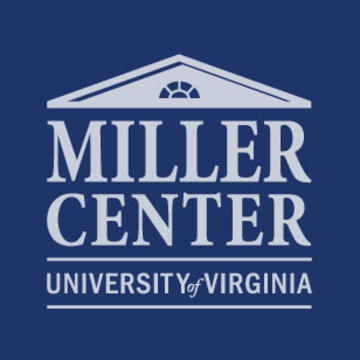Why we give
Miller Center donors discuss their involvement in the Center
Anne and Thad Jones
WHAT MOTIVATES YOU TO BE PART OF THE MILLER CENTER’S WORK?
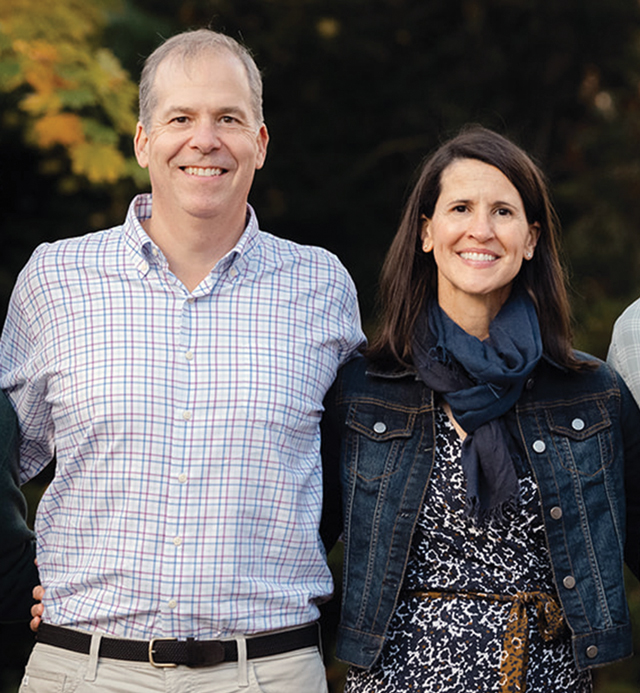
We appreciate participating in civil discourse about our political institutions and different political ideologies. It’s refreshing, especially now, to hear well-informed conversations that are nonconfrontational. Both of us have always been interested in history, and we want to keep educating ourselves on how history may affect the future. A few years back, the Presidential Ideas Festival was mind-blowing. In three days, the sheer amount of intellectual and political horsepower that came together was exceptional, as was the format—Democratic leaders, Republican leaders, everyone engaging in civil conversations oriented toward discussing and doing versus judging. Policy versus elections.
We think the Miller Center does a good job taking a balanced approach.
WHAT DO YOU THINK OF THE CENTER’S NONPARTISAN MISSION?
It’s unusual right now to find a balance of analytical perspectives without an obvious political bias overall. That’s not to say that bias isn’t present—we’re human. But we think the Miller Center does a good job taking a balanced approach. All of us could talk in a vacuum about what would be ideal. But dealing with the real world—having policymakers come together and talk about the issues from their own partisan perspectives—is how things are actually going to get done. We so appreciate the public events where experts are brought together to have these ongoing conversations. It’s unfiltered, academic, intellectually stimulating, and amazing.
HOW DO YOU HOPE YOUR SUPPORT WILL MAKE A DIFFERENCE?
We’re lucky to have the Miller Center right here in our backyard. In Charlottesville, we have a constant influx of people moving to town, and we always mention the Miller Center to newcomers. It’s a unique place for intellectual exploration and a gem in our community. Of course, we’re glad anyone anywhere can also attend virtually!
Fred McClure
YOU WERE A SPECIAL ASSISTANT FOR LEGISLATIVE AFFAIRS TO RONALD REAGAN, THEN ASSISTANT FOR LEGISLATIVE AFFAIRS TO GEORGE H. W. BUSH. GIVEN YOUR SENIOR WHITE HOUSE ROLES, WHAT APPEALS TO YOU MOST ABOUT THE MILLER CENTER?
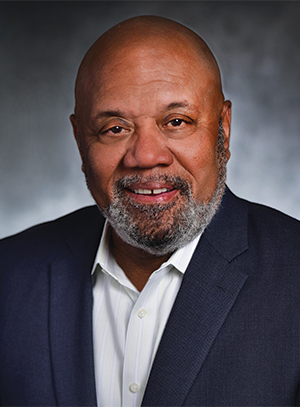
I’ve always been impressed with the quality of the oral history program. The interviews with senior staffers bring each presidency to life. I first became aware of the Center when I was interviewed for the Bush 41 [George H. W. Bush] oral history.
Since then I’ve been interviewed several times, including a memorable group interview in Kennebunkport [Maine] with the former president. I was also part of a group interview in Washington, D.C., with all the legislative affairs assistants who served Democratic and Republican presidents. Our policy differences didn’t matter in that setting. We were able to talk shop and share ideas about what worked best to get things done.
The fact that the Miller Center provides reliable, nonpartisan information for others to use when they make decisions—that is a good thing.
HOW DO YOU HOPE YOUR SUPPORT WILL MAKE A DIFFERENCE?
The Center’s oral history sessions help inform future decision-makers. We can embrace and examine the past and try not to make mistakes again, if we’ve made mistakes, or learn from what we experienced and apply it to how we create policy moving forward. The fact that the Miller Center provides reliable, nonpartisan information for others to use when they make decisions—that is a good thing.
In their public events, the Center also works hard to bring in different experts to talk about current events. They come together with the people who participated in making government decisions. In addition to supporting the good work with the oral histories, I want the Center to keep sharing ideas. Hopefully people will listen to these ideas and use them as a basis for making decisions. We’re all—and I include myself in the Miller Center family—working to take the Center’s impact to the next level.
Tricia A. Hoefling
WHY DOES THE MILLER CENTER'S WORK MATTER RIGHT NOW?
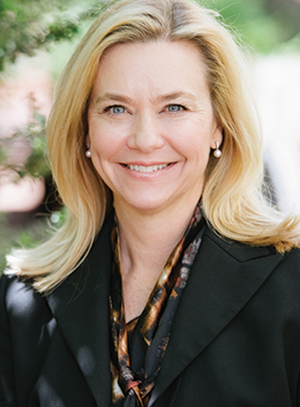
The Miller Center sustains American democracy. Through the work of its scholars, public events, and convenings of experts, the Miller Center provides a forum for deep dives into issues, instead of offering news flashes. There aren’t many comparable institutions that bring substantiative, nonpartisan ideas to the public and policymakers. The Miller Center stands alone.
HOW DO YOU HOPE YOUR SUPPORT WILL MAKE A DIFFERENCE?
I teach law students and undergraduates, and I have children who are old enough to vote. As a result, I spend a considerable amount of time thinking about how democracy has changed over the years and how it might change for future generations. I am proud to support an organization that takes a long view of history and offers insight about how to continue to improve our democratic institutions.
There aren’t many comparable institutions that bring substantiative, nonpartisan ideas to the public and policymakers.
WHAT PROJECTS AT THE MILLER CENTER MEAN THE MOST TO YOU?
The Miller Center’s presidential oral histories give us unparalleled access to data and information about past presidents and the conflicts they faced. Scholars, experts, policymakers, and teachers across the country use that Miller Center research to protect and improve the presidency moving forward.
I really admire Barbara Perry’s work as one of the leading nonpartisan Supreme Court experts. Barbara’s writings connect her observations about current events to the history and past practice of the Court. Moreover, her research and work show that our democratic institutions are organisms that change and develop over time while also trying to hold true to important democratic ideals.
The new Health Care Policy Project is another favorite. Instead of presenting a polarized, politicized view of health care, Guian McKee provides deep analysis of what matters in our health care system and offers ideas to improve it. I’m drawn to the in-depth research of these and other Miller Center scholars.
L.F. Payne
WHY SUPPORT THE MILLER CENTER?
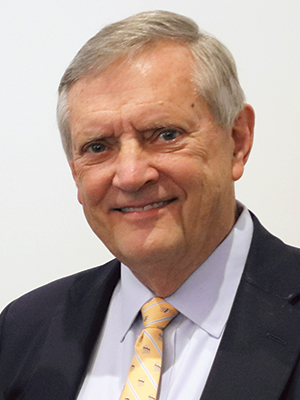
The Miller Center is the preeminent institution studying the American presidency. I appreciate its pragmatic focus on discovering what worked in the past and what might work in the future.
My wife, Susan, and I want to make a difference. Our democracy depends on all of us. The Miller Center’s scholarship shows us what effective government looks like. It’s shared with the larger world through op-eds and books, and it’s explored during weekly events at the Center. All of that is critical.
The Miller Center’s scholarship shows us what effective government looks like.
HOW DOES YOUR LEGISLATIVE EXPERIENCE AFFECT YOUR OUTLOOK?
From my time in Congress, I’ve seen the government’s work up close. I served with three presidents, so I’ve seen good leadership. I also learned about what not to do.
WHICH MILLER CENTER PROJECTS EXCITE YOU?
The First Year Project in 2017, which shared lessons learned about the crisis-prone first 365 days of presidential administrations throughout U.S. history. I also enjoyed the Presidential Ideas Festival in 2019, when former President Bill Clinton spoke about what it means to have “a more perfect Union.” The latest project I’m excited about covers the intersection of democracy and capitalism, exploring how our capitalistic democracy is the best way to organize a society.
FROM YOUR PERSPECTIVE, WHERE DOES OUR DEMOCRACY STAND?
Recently, all of us have learned about the fragility of democracy. I am a huge fan of the Miller Center and how its work helps strengthen that democratic foundation.
Diane Hodges Iorio
WHY SUPPORT THE MILLER CENTER?
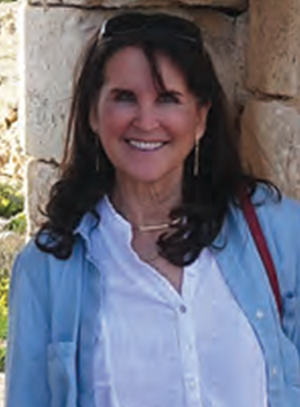
I ’m not only a Wahoo (UVA Class of 1980, College of Arts & Sciences) but a government major, so the Miller Center’s focus is a natural fit. However, I didn’t appreciate the breadth and depth of the Center’s scholarship and resources until I watched Statecraft: The Bush 41 Team on PBS. I was wowed by that documentary and the story it told about the George H. W. Bush administration.
A few weeks later I heard about and attended another event hosted by the Miller Center, which was also outstanding. I immediately signed up to receive notifications about all upcoming programming, and now attend multiple Miller Center events each week.
I support the Miller Center because I want to give back to an organization that produces so many excellent events—free and open to the public.
I support the Miller Center because I want to give back to an organization that produces so many excellent events—free and open to the public.
WHAT ASPECT IS MOST IMPORTANT TO YOU?
The compelling content and format of the events. While there may be hundreds of participants at a virtual event, I feel like I’m sitting across from Bill [Antholis, director of the Miller Center], having a conversation specially designed for me.
HOW HAS THE PANDEMIC AFFECTED WHAT YOU CHOOSE TO WATCH?
Last year turned me into a 24/7 learner. Among countless webinars I have participated in, the Miller Center’s are the gold standard.
I began watching these programs as a way to get through a year of isolation. I ended up not only learning about timely topics, but also becoming a more actively engaged citizen. The Miller Center provides an invaluable opportunity to watch experts with differing views debate critical issues and model civil discourse. We should all be making sure the Miller Center has the funds to carry out that mission.
Chuck and Candie Bruse
WHY SUPPORT THE MILLER CENTER?
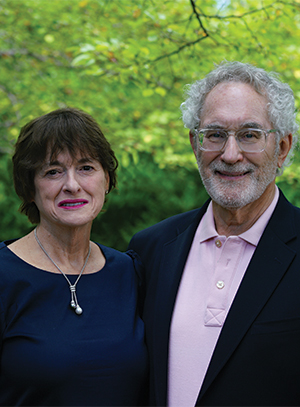
When Candie and I first moved to Charlottesville several years ago, after living in the D.C. area for 40 years, I surveyed the various programs and organizations within the University of Virginia that might spark our interests. I had read about the Miller Center’s major work on the presidency, and we quickly became familiar with the other aspects of its historical and public policy scholarship.
We are interested in all aspects of public policy and politics since our professional careers were focused on those fields. Both Candie and I served as staff for U.S. senators and on the Senate Judiciary Committee early in our careers. For the last 20 years of my career, I was vice president of federal governmental affairs for a major insurance company. So, it is fair to say that politics and government are in our blood.
We are not graduates of UVA, although our son is. And we believe that the Miller Center can benefit from bequests of any size.
YOU HAVE INCLUDED THE MILLER CENTER IN YOUR ESTATE PLANS. WHY DID YOU MAKE THAT CHOICE?
Candie and I recently executed new wills because we realized that our perspectives and priorities have changed. We thought it would be a good use of our assets to help an institution whose mission we support and whose programs we enjoy today.
We are not graduates of UVA, although our son is. And we believe that the Miller Center can benefit from bequests of any size.
HOW DO YOU HOPE YOUR GIFT WILL MAKE A DIFFERENCE?
The mission of the Miller Center can be accomplished only with donations from folks like us. Even modest contributions can make a big difference. The cost of paying the salaries of scholars and support staff, running the many outreach programs and in-person events, and maintaining the beautiful Miller Center headquarters are substantial and increasing. We support the Center so that it can continue its work and remain an important repository of historical and public policy expertise.
Allen and Ellen Hench
HOW LONG HAVE YOU BEEN INVOLVED WITH THE MILLER CENTER?
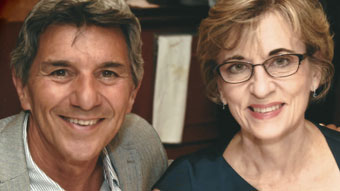
Shortly after we moved to Charlottesville from rural central Pennsylvania in 1999, I read about these free Friday morning discussions at the Miller Center. I went to one, with former Miller Center director Ken Thompson serving as moderator. The featured speaker would sit among the group, at the head of the large table in the center of the room, and all the guests scattered around. After the presentation, Ken opened the discussion. I went regularly each time I could. So when the Miller Center’s giving society, the Presidential Cabinet, was first started, we decided this was a cause we loved. And we have been members of the Cabinet every year since.
The opportunity for public presentation and discussion is just so cool!
WHY HAVE YOU DECIDED TO REMAIN LOYAL SUPPORTERS?
The opportunity for public presentation and discussion is just so cool! These are folks with fantastic back-grounds and experiences, with research, authorship, expertise. I have been blown away by the opportunity to sit with them and hear various viewpoints. As part of the Presidential Cabinet, we were invited to grand events—dinners, lunches, receptions, tapings, debates, etc.—over the years. These were people and places I had only dreamed about knowing and experiencing. This had a major impact. We felt like we were part of the “Miller Center family.”
WHAT ASPECT OF THE MILLER CENTER’S WORK IS MOST IMPORTANT TO YOU?
We’ve always loved public policy. And to be at the heart of the Center’s mission, as observer or participant, means so much. The Center’s research, special projects, presentations, and its role in informing the public and accepting input and analysis, is really vital these days. We are thrilled to be part of the endeavor, even in just a small way.
Kip Acheson and Elizabeth Carr
HOW LONG HAVE YOU BEEN INVOLVED WITH THE MILLER CENTER?
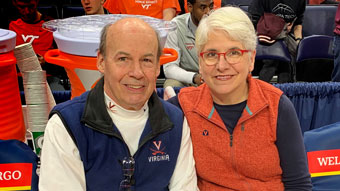
Three years, beginning when we retired to Charlottesville from Portland, Oregon.
WHAT FIRST DREW YOU TO THE WORK OF THE MILLER CENTER?
KIP: When we were in Portland, I joined the board of the World Affairs Council, whose mission was education on global affairs. When we came to Charlottesville, I was looking to replicate that experience. I wanted something interactive and personal, where I could keep learning. The Miller Center offers that. And the fact that the Center attracts speakers from D.C. and elsewhere—that’s a plus for us. It’s access that we’d normally have only through television.
ELIZABETH: We’d also seen some of the Miller Center’s work on C-SPAN. And the Center’s connection with Jim Lehrer [a board member and legendary journalist who passed away earlier this year] was also appealing. And we’re drawn to the Center’s commitment to be nonpartisan.
The Center’s work to challenge the political system and analyze the presidency is also so important, especially during a crisis like we’ve had this year.
WHY HAVE YOU REMAINED LOYAL SUPPORTERS?
KIP: We go to as many Miller Center events as possible. It’s important to us that the Center organizes and provides these lectures, interviews, and symposia at no charge for the community and students. We want to support that. The Center’s work to challenge the political system and analyze the presidency is also so important, especially during a crisis like we’ve had this year.
ELIZABETH: Yes, it was terrific that the Miller Center continued lectures, even though everything had to be done remotely. We still get a lot out of the online webinars and appreciate the efforts to keep programming going.
Bob Bond
THE MILLER CENTER SWITCHED FROM IN-PERSON TO ONLINE EVENTS AT THE START OF THE COVID-19 PANDEMIC. YOU HAVE ATTENDED EVERY ONE OF THOSE EVENTS. HOW DID YOU DO IT?
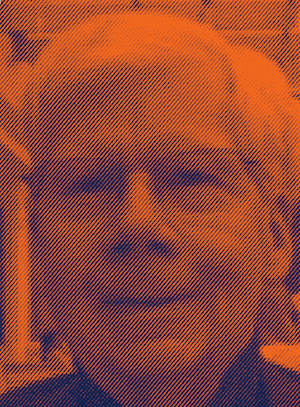
I didn’t set it out as a goal, but I subscribed to the email newsletter and always signed up for the events I read about. I’ve been retired since 1998. I was still pretty active in the high technology community and signed up for many courses and discussions. When the pandemic hit, I could no longer do in-person events. Fortunately the Miller Center did a fabulous job of filling in the gaps with interesting content.
HOW DID YOU DISCOVER THE MILLER CENTER?
Shortly after my late wife and I moved to Crozet from Northern California in 2008, we attended a luncheon where [former Miller Center board member and renowned journalist] Jim Lehrer was one of the speakers. It was fascinating. When I got home, I went to the website and shortly after attended my first presentation at the Miller Center.
When the pandemic hit, I could no longer do in-person events. Fortunately the Miller Center did a fabulous job of filling in the gaps with interesting content.
WHAT DOES THE MILLER CENTER MEAN TO YOU?
I’ve always been interested in public policy. The Center consistently has expert panelists and is able to engage in dialogue that is civil. The discussions include people who are clearly on opposite sides of the issue, but are always very respectful of one another.
WHY SUPPORT THE CENTER?
I’ve always believed that if you take advantage of programs, you have an obligation to support them. These things don’t materialize out of thin air. They require funding. I also believe in the mission. It’s easy to become polarized and siloed. I’ve always appreciated that the Miller Center provides a place for discussion, and I’ve tried to support that to the extent that I can.
Maya Ghaemmaghami
WHY IS THE MILLER CENTER IMPORTANT TO YOU?
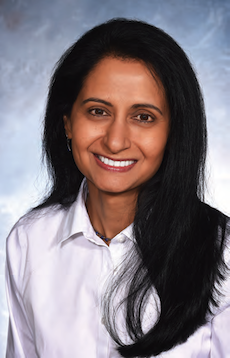
I believe we need a reputable, scholarly institution that discusses the topics that are important to Americans, without bias. There are no answers. That’s not what I’m looking for. I want information. Newspapers and cable news lean one way or the other. But at the Miller Center, I get an academic viewpoint, delving deeply into the full spectrum of critical issues.
SO, THE MILLER CENTER’S COMMITMENT TO NONPARTISANSHIP IS A BIG PART OF THE DRAW FOR YOU?
Whatever one’s views are, we can learn about policy issues from the other side. I have seen the Miller Center from all angles: as an active participant in its weekly events, as a donor, and as a member of the governing board. What the Miller Center provides is an opportunity for anyone in the public to learn about public policy without fear or favor.
Whatever one’s views are, we can learn about policy issues from the other side.
YOU’RE A PHYSICIAN. WHAT’S YOUR TAKE ON OUR EFFORTS TO EXAMINE AND ANALYZE HEALTH POLICY DURING THE PANDEMIC?
Health care policy affects all of us, no matter our political affiliation. The Miller Center is a perfect venue for these discussions. The goal always is to find ways to work together and move forward.
WHAT ABOUT OUR WEEKLY EVENTS?
Miller Center scholars truly are a hidden gem in our community, offering their insights through lectures, book talks, and Q&As—all free to the public and available online at millercenter.org. I’m particularly impressed by the high frequency and caliber of the public programming. It’s trustworthy. What I learn at each event allows me to make up my own mind—whether the speakers are covering issues of health care, equity, elections, democracy, or foreign relations. There’s no other place like it.
